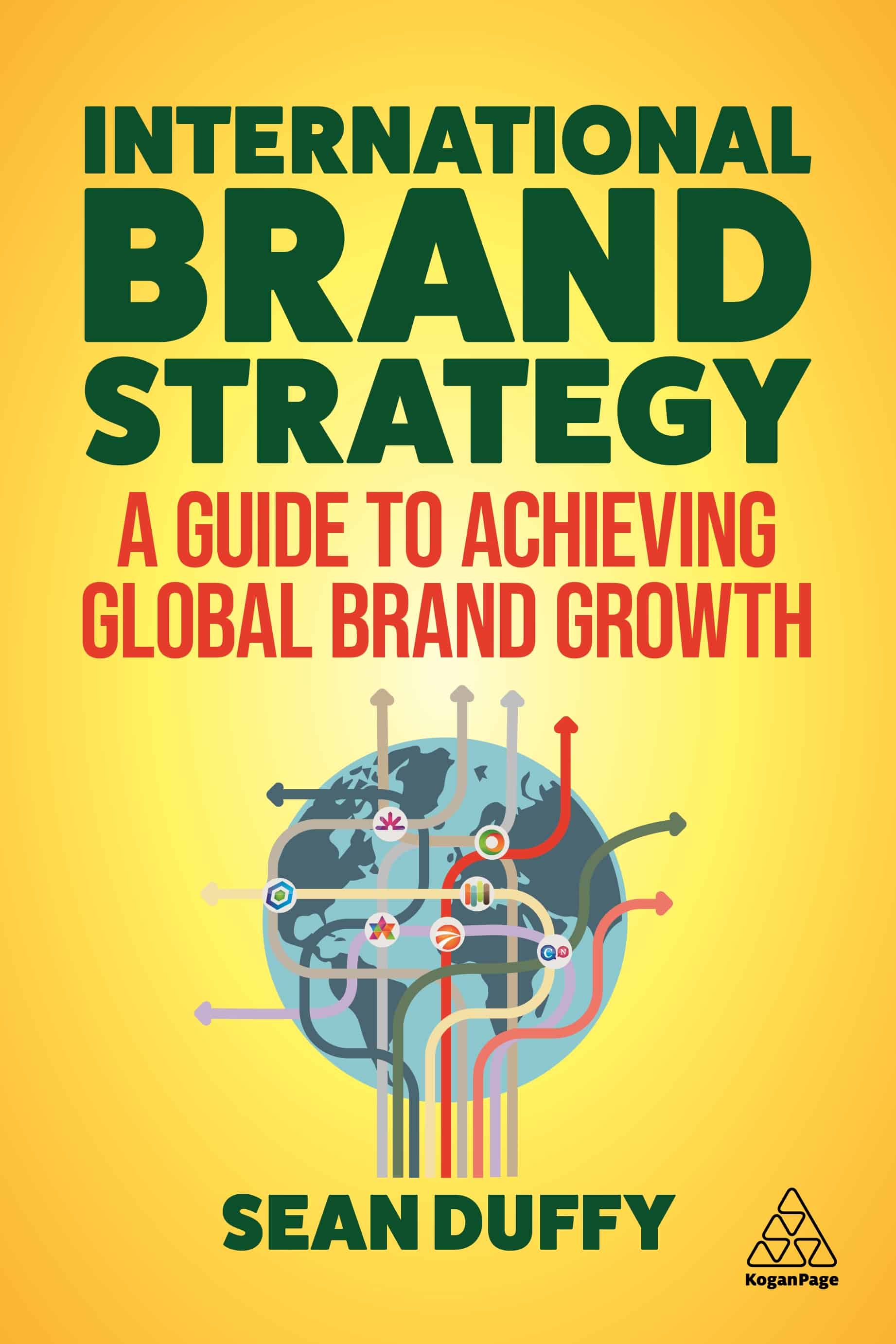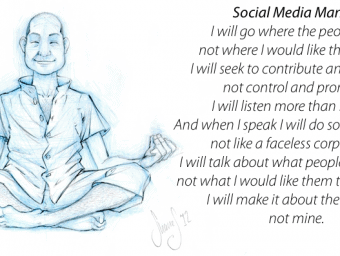The real reasons why pharma fumbles in social media
FDA and EU regulations are the least of pharma's challenges. I’m in Berlin on the eve of the Digital Pharma Europe “Unconfere...
29 Mar 2010 2933 ViewsFDA and EU regulations are the least of pharma’s challenges.
I’m in Berlin on the eve of the Digital Pharma Europe “Unconference.” I’m very excited about the prospect of two days of open dialogue about pharma and social media in Europe. I think the fact that it is being hosted by Bayer Schering Pharma is a very encouraging sign that pharma is taking social media seriously here in Europe. In their introduction packet, the organizers (Colin Foster of Novartis, Len Starnes of Bayer Schering Pharma, Jason Youner and Bryon Main of ExL Pharma) state the case for pharma to get moving on the social media front:
“We see all around us the swirling patterns of a monumental shift in the way people manage their lives, interact with each other and with the products and services they use. Pharma cannot sit idly by while the rest of the world departs on this new journey-they have to join the online conversation now if they want to maintain quality relationships with stakeholders such as patients and physicians.”
The implication is clear: Pharma is sitting idly by while the rest of the world departs on this new journey. I agree with the observation. But before we can get pharma moving along the righteous path, we have to resolve one issue: why has pharma not adopted social media in earnest?
The answer we hear most is “regulations” — especially in Europe where pharma is under much tighter marketing restrictions than in the States. But I feel the legal and regulatory issues obscure the real reasons why pharma can’t get its head around social media. When you really look closely at these companies and at the nature of a successful social media campaign, it is clear that regulations are only a small part of the story. The real reason is more about internal culture, than external regulations. In other words, pharma is what’s keeping pharma out of social media. In fact, I bet that if all the legal and regulatory barriers were dropped tomorrow, pharma would still struggle with social media.
Here’s why:
1. Culture of Quiet – Social media thrives on transparency and engagement with the general public – these are two attributes to which few pharma companies can lay claim. Aside from investor communication, non-engagement has been a way of life in many pharma companies despite the fact that it breeds distrust from the public. Bear in mind that non-engagement is also the preferred tactic of tobacco and oil companies. This hardly seems like the type of example that pharma should be following.
2. Sales Approach – Want to sour a social media relationship? Just start selling something. The sales mentality that drives many pharma companies will lead to failure if unleashed in a social media environment. This approach is also at the heart of much of the legal and regulatory liability. Social media is not a sales platform. It is, however, an excellent platform to build large communities in different therapeutic areas, listen to their needs and earn their trust.
3. Skewed Priorities – A corollary to number two is the sentiment: “If social media is not a sales platform, then what’s the use of investing in it?” Pharma budgets and priorities are centered on history, and that history has a strong bias towards traditional sales techniques and against long term brand development or community-building.
4. Command & Control – Compared to traditional media, social media is messy and chaotic. Pharma communication is run with a command and control mentality. You can see how this can be problematic. So do we tell corporate communications to just let their hair down and go with the flow? No need. Even something as messy and chaotic as social media can be controlled with the right measures.
5. Risk Tolerance – This will be one of the biggest hurdles for pharma to overcome: Its aversion to risk. Much of what we are doing at The Duffy Agency in social media with pharma has never been done before. That does incur the risk of noncompliance with regulations, especially since they were not written with social media in mind. So there is no definitive answer as to what can be done. Legally, the safest thing is to simply avoid the public online. This would eliminate the legal risk. But I believe it introduces far greater commercial risk. A smart social marketer can significantly mitigate all these risks, but not eliminate them completely.
6. Brand Readiness – Social media provides a platform for any employee to be a brand advocate. But exactly what will they be advocating? Most pharma companies have had some expert create a glossy binder of brand values. These values are espoused in the annual report and in recruitment adverts. Aside from that, the binder usually sits on a shelf providing a sense of security to those who are responsible for such things. Rarely are these values understood and felt on a grassroots level by the average employee. This will be one of the biggest liabilities for pharma when it enters the social media conversation because social media will magnify this. If you do not have a well defined brand, if your values are irrelevant or out of date, if your people don’t understand or live these values, then social media will amplify these discrepancies.
7. Approval process – Social media is a conversation and as such requires a certain timing element to work. Approval processes inside pharma are convoluted and slow. Safeguards certainly need to be applied to social media content, but they need to be tailored to this new media. One place to start is to stop trying to approve every sentence that is written, and instead approve people who you feel you can trust to say the right thing.
The discussion over compliance with legal and regulatory is essential for pharma. But I feel it is overshadowing other social media challenges that are far greater. While the lobbyists are working to update the legal and regulatory restrictions, I suggest that the CEOs and CMOs get to work addressing the real challenges that face pharma in the social media arena. Ironically, one of the best tools for addressing the seven issues mentioned above is social media itself. Launched internally, such a campaign could both address challenges and increase familiarity with this new tool. I hope to discuss these issues here in Berlin this week and will share what I learn. In the meantime, let me know what you feel are the greatest challenges facing pharma’s engagement with social media and how they be addressed.
See Also:
Do Pharmaceutical Companies Have “Social Media Anxiety Disorder?”
Like this post? You'll find more marketing insights in my new book: International Brand Strategy: A guide to achieving global brand growth, now available from booksellers globally. Order your copy here.
Speaker, consultant & founder of Duffy Agency, the flipped digital agency that provides accelerated growth to aspiring international brands.






2 replies
The seven issues you’re describing are definitely very interesting. Regarding the regulations it feels like an interest time in Sweden right now, when the total monopoly on pharma-products has been dropped.
I’ve got no actual insight in the pharma-industry, but the feeling I get from your text is what we also experienced when talking to companies regarding our master thesis, that big companies with established procedures for most things tends to see social media as something “unserious” (especially companies who are dealing with “serious” products).
It will definitely be interesting to read about how the discussions have been!
/Anders
Coming from the environment you described, I especially liked…#1 (obscure=fishy, open=nice),#2 (sell = sour in social media),#3 (if it does not sell, sell and sell, why bother),#4 (“social media are messy”; “remain in the comfort zone”),#5 (risk aversion is an evolutionary force of great magnitude among authorities and pharma regulatory departments),#6 (BIG pharma branding is nearly as unpredictable and rigid as regulatory guidelines) and#7 (make everyone internally acquainted with social media by using it AND get rid of approval culture (HOW? Will it ever happen?).
The other points were great too! Oh, eh, there were no other…
Core challenge; to find a path that is effective in social media and acceptable to authorities / regulatory dept.
Cheers,Ragnar